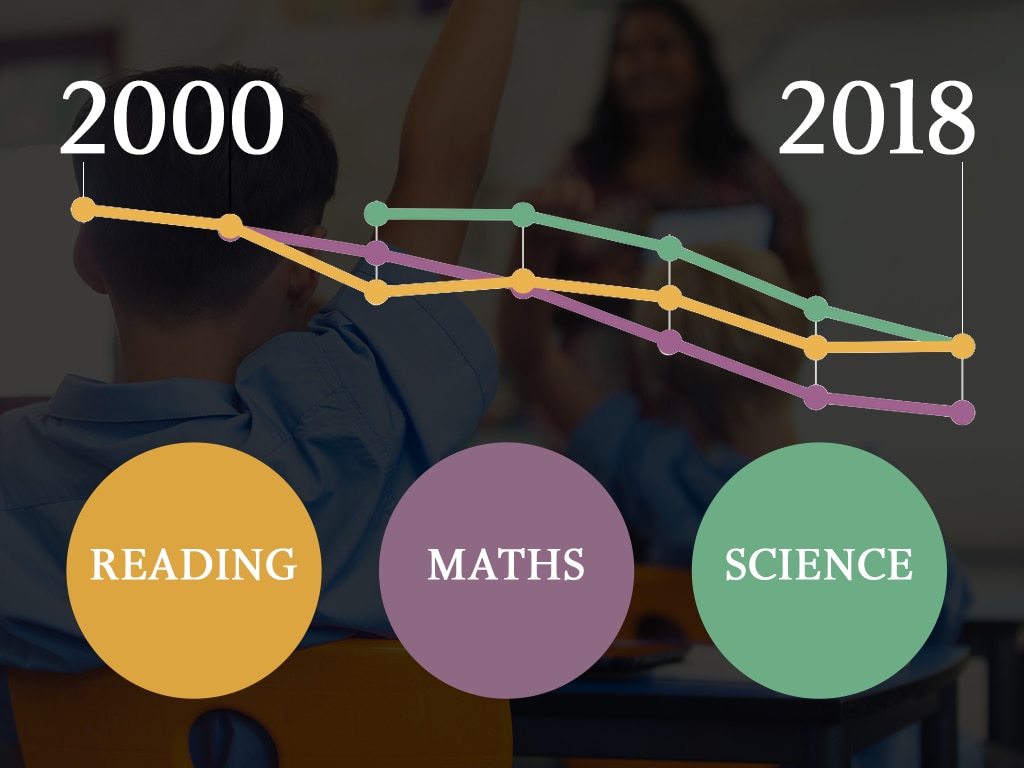PISA results: How did system get this so wrong?

The major political parties, all of which have overseen education policy at various stages, will be pointing the finger at each other, while the teachers union will blame the government, funding, perhaps the test itself.
READ MORE: Australia tanks in global education rankings
Some will blame the curriculum, schools, teachers and the universities that train them.
Parents, accused of being disengaged from their child’s education, will no doubt get a whack along the way.
Yet, the fact that Australia has been going backwards for almost the entirety of the 21st century, despite a plethora of national reviews, inquiries and rewrites of the nation’s educational goals, suggests a different approach might be warranted.
The irony of Australia’s predicament is that a stack of credible evidence already exists as to how young people acquire knowledge, learn new skills, and develop higher order analysis and problem-solving skills. After all, humans have been learning, creating, inventing and achieving since day dot.

A rigorous knowledge-based curriculum has been associated with superior learning outcomes in many domains, and is likely to be credited with helping to lift results for the United Kingdom.
Equally, explicit teaching practices, which is the act of breaking down new topics into small parts and involves explanation, demonstration and practice, are associated with better learning outcomes than more recently popular inquiry-style learning approaches.
Meanwhile, high expectations for all students and disciplined classrooms are essential.
All this was recently acknowledged by the OECD’s education director Andreas Schleicher, when he went public praising a school that has been derided for its traditional approaches and vilified being the “strictest in England”.
Following a visit to the Michaela Community School in Wembley, northwest London, Schleicher said “positive discipline” and “direct instruction” was creating “happy and confident” pupils with outstanding outcomes.
“In every classroom that I observed, teachers made learning goals explicit, structured their lessons clearly and asked engaging questions that stimulated higher-order thinking. No time was wasted, because students knew exactly what to expect,” Schleicher said.
Contradicting the school’s critics, he said the high demands placed on children had made them ambitious rather than anxious.”
That such a protagonist in the 21st century education movement, where skills are prized above knowledge, because “Google knows everything”, endorsed Michaela’s methods should not be ignored.
While Australia’s policy makers need to be mindful that the world is changing, and changing fast, and that young people need to be prepared for the unknown, it cannot be at the expense of the educational methods and practices that have served society so well for so long.




Following a near 20-year decline in students’ academic performance, Australian parents will rightly be wondering: how did it go so wrong?